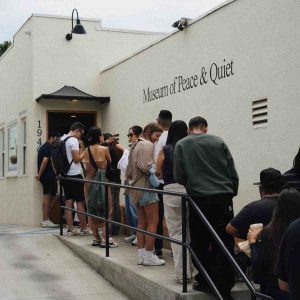
Beyond the Tourist Trail: Exploring the Soul of the South
The South. A region painted in broad strokes of sweet tea, magnolia blossoms, and antebellum charm. But beyond the meticulously manicured lawns and well-trodden tourist paths lies a vibrant, complex tapestry waiting to be unravelled. This isn’t a story of plantations and predictable narratives; this is a journey into the heart of the South, a discovery of its soul.
Forget the postcard images. The true essence of the South resides in the hushed whispers of forgotten towns, the soulful rhythms of blues music echoing through dimly lit juke joints, and the warmth of genuine hospitality offered by those who call this land home. It’s a region of stark contrasts, a blend of history’s shadows and the radiant light of a resilient spirit.
Unearthing Hidden Histories: Beyond the Plantation Myth
The South’s history is undeniably complex, a narrative often simplified and sanitized for consumption. While acknowledging the painful legacy of slavery is crucial, it’s equally vital to explore the untold stories of resilience, resistance, and the enduring spirit of those who shaped this land despite unimaginable hardship. This requires venturing beyond the grand plantation houses, delving into the narratives of Black communities, and understanding the profound impact of their contributions to the region’s culture, music, and food.
Visiting historically Black colleges and universities (HBCUs) like Spelman College or Tuskegee University offers a unique perspective. These institutions are not just educational centers; they are cultural hubs that have nurtured generations of leaders and artists. Exploring their campuses, attending events, and engaging with their communities provides an invaluable window into a rich and often overlooked aspect of Southern history.
| Location | Experience |
|---|---|
| Charleston, SC | Explore Gullah Geechee culture |
| Montgomery, AL | Visit the Equal Justice Initiative museum |
| Nashville, TN | Immerse yourself in the history of Black music |
The Symphony of Southern Sounds: Music Beyond the Mainstream
The South’s musical heritage is as diverse and rich as its people. While country and bluegrass often dominate the narrative, the soulful strains of blues, gospel, and jazz resonate deeply within the communities that birthed them. Seek out intimate clubs and local festivals where authentic Southern music thrives. Experience the raw emotion of a bluesman’s guitar, the soaring power of gospel voices, and the intricate rhythms of zydeco. These are sounds that speak directly to the soul of the South.
| Genre | Location to Explore |
|---|---|
| Blues | Clarksdale, Mississippi |
| Gospel | New Orleans, Louisiana |
| Appalachian Folk | Galax, Virginia |
A Culinary Journey: Beyond Fried Chicken and Grits
Southern cuisine is far more than just fried chicken and grits, though those are undeniably delicious! It’s a tapestry of flavors influenced by diverse cultural backgrounds, reflecting the region’s history and the ingenuity of its people. Explore farmers’ markets bursting with fresh produce, sample soul food in family-run restaurants, and discover hidden gems tucked away in small-town diners. This culinary journey is as much about the people you meet as it is about the food itself. It’s about sharing stories and connecting over a shared meal.
| Dish | Location |
|---|---|
| Lowcountry Boil | Charleston, South Carolina |
| BBQ | Eastern North Carolina, Memphis, Tennessee |
| Gumbo | New Orleans, Louisiana |
Finding the Authentic South: Engaging with Local Communities
The true heart of the South beats in its communities. Engage with the locals, learn about their lives, their traditions, and their perspectives. Volunteer at a local organization, participate in a community event, or simply strike up a conversation with a friendly stranger. These authentic interactions offer an unparalleled understanding of the region’s vibrant soul. Don’t just be a tourist; be a participant in the rich tapestry of Southern life. Embrace the unexpected, allow yourself to be surprised, and let the soul of the South seep into your very being. The journey itself is the reward.

Additional Information
Beyond the Tourist Trail: Exploring the Soul of the South – An In-Depth Analysis
A superficial exploration of the American South often centers on well-trodden tourist attractions: antebellum mansions, Civil War battlefields, and vibrant, albeit often commodified, cultural performances. However, a deeper dive into “the soul of the South” reveals a complex tapestry woven from historical trauma, resilient cultural practices, evolving social dynamics, and ongoing economic disparities. To truly understand this region, one must move beyond the glossy brochures and engage with the nuances of its multifaceted identity.
1. The Legacy of Slavery and Jim Crow: Unresolved Narratives:
The South’s history of slavery and subsequent Jim Crow segregation profoundly shapes its present. While many monuments and museums acknowledge these dark chapters, a critical analysis necessitates understanding their lasting impact on social structures, economic inequalities, and racial tensions. For example, the enduring wealth gap between white and Black communities is directly attributable to generations of systemic oppression. Studies by the Economic Policy Institute consistently reveal significant disparities in income, wealth accumulation, and homeownership, demonstrating the lingering effects of discriminatory policies. These disparities are not merely historical artifacts; they manifest in contemporary challenges regarding access to quality education, healthcare, and justice. A meaningful “exploration of the soul” requires confronting these uncomfortable truths and engaging with ongoing efforts towards racial reconciliation and restorative justice.
2. The Resilience of Southern Culture: Beyond Stereotypes:
Southern culture is often reduced to simplistic stereotypes: hospitality, slow pace of life, and traditional values. However, a richer understanding reveals diverse cultural expressions shaped by a multitude of influences – Indigenous traditions, African American contributions, Appalachian heritage, and immigrant communities. For instance, the vibrant musical traditions of the South, from blues and gospel to bluegrass and zydeco, reflect a fusion of these diverse influences. Similarly, the South’s culinary heritage, often celebrated through tourist-oriented barbecue joints, has deeper roots in diverse methods of food preservation and resource utilization, reflecting the resourcefulness and ingenuity of its people throughout history. Examining these nuanced cultural practices requires moving beyond superficial observations and engaging with the communities who actively preserve and reinterpret these traditions.
3. Economic Development and the Rural-Urban Divide:
The South’s economic landscape presents a stark contrast between booming urban centers and struggling rural communities. While cities like Atlanta, Charlotte, and Nashville experience rapid growth driven by technology and finance, many rural areas grapple with poverty, population decline, and limited economic opportunities. This disparity highlights the need for targeted economic development strategies that address the specific needs of rural communities, potentially focusing on sustainable agriculture, tourism diversification (moving beyond mass tourism), and investment in infrastructure and education. Case studies of successful rural revitalization projects, such as community-supported agriculture initiatives or the development of artisan crafts industries, offer valuable lessons in fostering economic resilience in these often overlooked areas.
4. The Evolving Political Landscape:
The South’s political landscape has undergone a dramatic transformation in recent decades, shifting from a largely Democratic stronghold to a predominantly Republican region. Understanding this shift requires a nuanced analysis of factors such as the impact of the Civil Rights Movement, the rise of the conservative movement, and changing demographics. Analyzing election data, polling information, and sociological studies reveals the complex interplay of factors that have contributed to this change, highlighting the evolving political identity of the region.
5. The Future of the South:
Ultimately, “exploring the soul of the South” necessitates acknowledging its complex and evolving nature. It requires engaging with the historical legacies that continue to shape the present, celebrating the richness and diversity of its cultures, and addressing the ongoing challenges of economic inequality and social justice. By moving beyond the superficial narratives and engaging with the lived experiences of Southern communities, we can gain a more profound understanding of this dynamic and multifaceted region. The future of the South hinges on its ability to confront its past, embrace its diversity, and build a more equitable and prosperous future for all its inhabitants.






